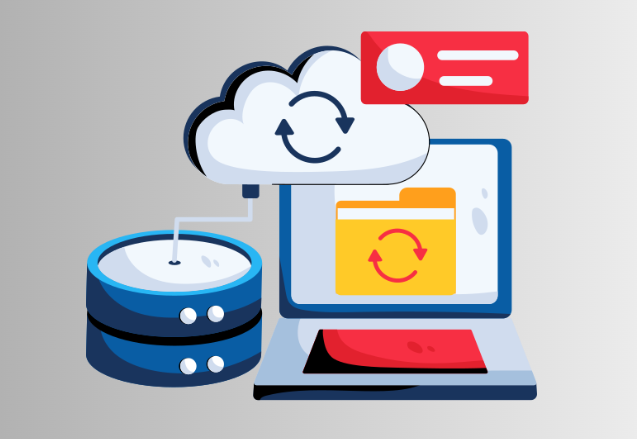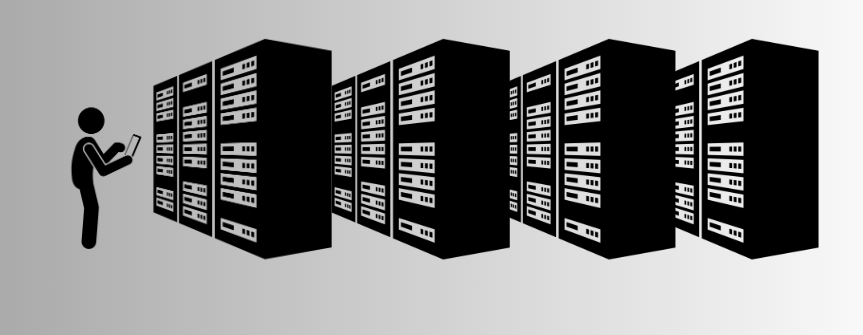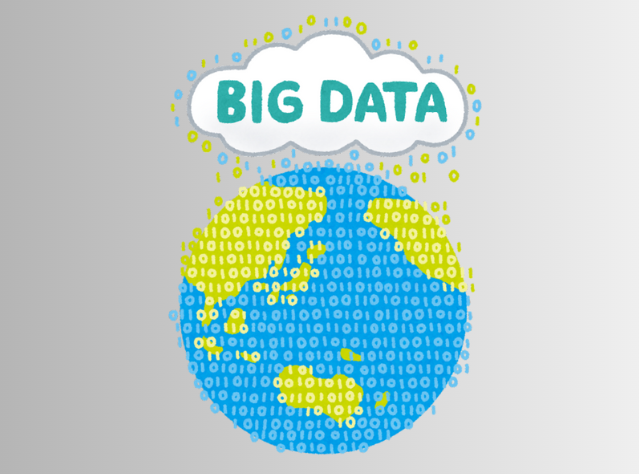Choosing between cloud and data centres might be confusing as one might outperform the other. Most organisations are getting digital nowadays and rely on heavy data outflows in day to day operations. This increases the requirement for an effective method of data storage, deployment, and maintenance.
Cloud storage is the latest advancement in the field of data storage. Cloud based services offer remote servers for storage and provide many other services. However, data centres might be effective for companies looking for a more private data storage organisation for their day to day operations.
In this article, we will learn about some major differences between storing data on the cloud or data centres.
What is a Cloud?
The cloud is a network of remote global or individual servers that help store, manage, and process data over the Internet. Users can access and modify their stored data online, irrespective of their local system or servers.

Cloud can be accessed via the internet and all cloud computing services are offered by cloud by a rental system. Cloud Computing is an extension of cloud based solutions that provide on demand IT solutions on a pay per base model.
Operational and maintenance costs are significantly reduced by the use of the cloud as organisations no longer have to invest in physical assets, maintenance which reduces the overall burden and makes it a cost-effective alternative storage solution for businesses.
Also, check, What is Google Cloud Computing Certification?
Why Choose Cloud Storage?
Cloud storage is an advanced and innovative storage solution with greater accessibility, scalability, and cost effective alternatives. Many organisations are switching to cloud solutions as the cost of setting up entire hardware costs, setup, IT, maintenance, and others are reduced by a significant amount.
Cloud storage is a faster and more productive alternative for startups and organisations looking for cost effective methods. Cloud services work on a pay per use model where organisations or individuals only need to pay for the resources they utilised over a period of time.
What is a Data Centre?

A Data Centre is a dedicated space with networked computers and other resources to effectively deploy, run, and maintain the data and infrastructure in your own network and infrastructure space.
Stable and large organisations still prefer their own data centres over cloud based solutions. Using data centres organisations have more strict control over the security and performance of daily operations in the industry. The setup and maintenance cost of a data centre is high but in the long run, it is worth investing.
Why Choose Data Centres?
Data Centres provide controlled and confined infrastructure for the storage of important information of an organisation and meet its regulatory compliance and performance criteria.
These data centres provide more optimised performance for applications that require low latency, no lags, and high bandwidth. Organizations with such criteria or requirements prefer data centers over cloud based storage services.
Also, data centres are considered to provide more secure storage with greater access controls and disaster recovery plans. You will have your own hardware. Software, and security protocols to keep all your storage in a private space.
Differences between Data Centres and Cloud Storage


Choosing a storage solution depends on the requirements. Let us check the major difference between data centres and cloud based storage solutions below.
| Data Centres | Cloud |
| The Data Centre is a physical resource | Cloud is a virtual resource |
| The data centre is owned and managed by a single organisation | Cloud is owned by a cloud service provider. |
| It is not a rent based solution | It is a rent based storage solution. |
| It provides full control over the storage resources and security measures. | It provides limited control over various resources and policies. |
| Scalability is limited | Easily scalable |
Types of data centres include
|
Types of cloud include
|
| No subscriptions required | Plan based subscriptions |
| Access is limited to local networks or VPNs | It provides accessibility from anywhere with an internet connection. |
| Organisations have to setup backup and disaster recovery solutions manually | It includes automated backup solutions and recovery options |
| Easy modifications and tailor data to meet specific requirements. | Compliance and modification depend on the regulations and policies set by the cloud service provider. |
| It offers a limited integration ability and can be integrated with specific applications | Integrate with a wide range of platform and services |
| It is best for stable organisations with control requirements | It is suitable for businesses with scalable and flexible requirements |
Also, check, the Top 5 Cloud based Certification to start your Cloud Career in 2024
How to Choose an Effective Storage Solution?
Choosing an effective storage solution depends on your organisation’s specific needs. Check some major checkpoints which might help you make better and more informed decisions.
- If your organisation needs more scalability and flexibility, then you might consider the cloud. However, if your storage needs are predictable then data centres might be sufficient.
- If you are looking for a cost effective solution then the cloud is the best option as it offers pay as you go subscription and provides infrastructure, storage, applications, and other services.
- However, if you want to build a long term stable storage solution with greater control and security then you might consider choosing data centres over the cloud.
- Data accessibility might sometimes get slower due to lower bandwidth and other factors that might create a bad impact on user experience.
- However, data centres run on-premises infrastructure which provides faster access time and operates at high speed and low latency rates. It is effective for projects which require real time performance (low latency) and higher speed.
- Cloud provides automated backup and disaster recovery solutions. However, in data centres you have to customise your backup and disaster recovery solutions manually.
- If you prefer going with the trends and adapting to new technologies then you might consider cloud platforms over traditional storage solutions.
Also, check, What is Azure Data Storage?
Learn DevOps and Cloud Computing with PW Skills
Enrol in our 6 month DevOps and Cloud Computing Course and master the art of deploying, running, and maintaining a cloud-based server and the art of using a DevOps management system between operational and development teams. Master advanced DevOps tools like Docker, Kubernetes, Ansible, Terraform, and Jenkins to make yourself job ready.
Get access to industry mentorship sessions, interview opportunities, industry based curriculum, certification, and much more only at pwskills.com
Data Centre And Cloud FAQs
Q1. What is a data centre?
Ans: Data Centres are on-premises locations with hardware, software and other resource setup for deploying, running and maintaining data over a local network or computers.
Q2. What is the use of a Data centre?
Ans: Data centre offers IT service solutions such as servers, data storage, network equipment, and more. It is a physical infrastructure which stores a company's digital data.
Q3. What are the types of data centres?
Ans: The four major types of data centre are Telecom, Enterprise, Colocation, and Hyperscale data centre.
Q4. Who owns a data centre?
Ans: A data centre is owned and operated by big and stable companies, vendors, banks, and others for their own purposes.
Q5. Which is the largest data centre in India?
Ans: Yotta DC Park is a colocation data centre located in Mumbai, India is the largest data centre in India.


